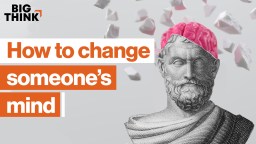ASHTON APPLEWHITE: Elder speak is a term coined by a Yale Law psychologist Becca Levy for the condescending language that so many people revert to, almost like baby talk for older people-- honey, sweetie, dearie-- that is condescending and diminishing. And no one likes to be condescended to, of course. Her studies show that people who are spoken to in this way actually start to think and move and act differently. Even people with severe dementia, you might assume wouldn't be perceptive to that. Nobody likes to be condescended to, and certainly, older people are no exception. In the US, it is really rare to be at an event that includes all ages, unless it's a family gathering or a big social event, like maybe a sports event, or a march, or something. And it didn't used to be this way.
As recently as 150 years ago, most Americans might not even know their age, didn't celebrate their birthdays. And then it began to be, along with the Industrial Revolution, age began to become important. It started to be used as a legal indicator of when you could have access to things, married, go to school. School began to be divided into grades. Nursery school came into existence. Old people's homes came into existence. And all those institutions had the effect of fostering segregation. People started to socialize, and be educated, and so on with their age peers. And when you have segregation, you foster discrimination. So ageism came along. And it is really, really important to question why, if you're in a room, and everyone is the same age, why is that the case? And unless there's a good reason, to reach across age boundaries.
We have this idea that age is a huge gap, but, in fact, age tells you very, very little about what a person is interested in or capable of. It's a much smaller gap than class, I think, or than a lot of other things that shape who we are and how we are in the world. Ageism is based on stereotypes, of course, the assumption that all members of a group are alike, which is, of course, never accurate, and never right. They're especially dumb when it comes to aging, because the longer we live, the more different from one another we become. A group of seven-year-olds, obviously each seven-year-old is unique, but they have a lot more in common developmentally and socially than a group of 17-year-olds, who are way more homogeneous than 47-year-olds, and so on. So we tend to think of all older people as like, old, as though they were lumped into some category, which is one reason I so heartily dislike the term, "the elderly," as though you somehow fall off a cliff one day and get lumped with all these same looking, and same acting, and same thinking older people. When, in fact, the older we are, the more heterogeneous we are and the less our chronological age says about us.





